Arthur 'Big Boy' Crudup A Music Man Like Nobody Ever Saw (5-CD Deluxe Box Set)

* incl. VAT / plus shipping costsDepending on the country of delivery, the VAT at checkout may vary.
Ready to ship today,
delivery time** appr. 1-3 workdays
Arthur 'Big Boy' Crudup: A Music Man Like Nobody Ever Saw (5-CD Deluxe Box Set)
A Music Man Like Nobody Ever Saw - Elvis Presley ,
• The first box set devoted to this blues giant! ,
• His complete recordings 1941-1962! ,
• Songs include the original versions of Rock Me Mamma, That’s All Right, My Baby Left Me, Mean Ol’ Frisco, So Glad You’re Mine, and many more! ,
• Newly researched biography by award-winning blues journalist Bill Dahl. ,
• Rare and exclusive photos! ,
In the world of music, there was never anyone quite like ARTHUR 'BIG BOY' CRUDUP. Rooted in the Mississippi Delta, his style was propulsive, melodic, original, and profoundly soulful. If he wasn’t 'The Father of Rock ‘n’ Roll', as one LP proclaimed, there’s no doubt that rock ‘n’ roll owes a debt to his songs, including That’s All Right Mama, My Baby Left Me, Rock Me Mamma, So Glad You’re Mine, and Mean Ol’ Frisco Blues, as much as to his tight, swinging brand of rural blues. ,
Arthur Crudup was in his thirties when he made his first recordings in 1941 and recorded prolifically until his death in 1974. This set includes his complete recordings from 1941 until 1962, including every extant song from RCA and its associated labels, as well as his sides for Trumpet, Checker, Ace, and Fire. Over one hundred recordings in all. An expressive singer and a true poet of the blues, Arthur Crudup certainly deserves to be known as the guy who wrote three songs that Elvis Presley recorded during the Fifties, but he was a towering musician in his own right. His influence didn’t end at Elvis Presley. In addition to all those that Elvis influenced, countless other blues and rock musicians adapted his songs and his sweet, lyrical style. ,
These 124 songs on 5 CDs are complemented by a 68-page book by Bill Dahl, rare photos, and a newly researched discography.
Article properties: Arthur 'Big Boy' Crudup: A Music Man Like Nobody Ever Saw (5-CD Deluxe Box Set)
-
Interpret: Arthur 'Big Boy' Crudup
-
Album titlle: A Music Man Like Nobody Ever Saw (5-CD Deluxe Box Set)
-
Genre Blues
-
Label Bear Family Records
- Preiscode EK
- Edition 2 Deluxe Edition
-
Artikelart Box set
-
EAN: 5397102173523
- weight in Kg 1.9
| Crudup, Arthur - A Music Man Like Nobody Ever Saw (5-CD Deluxe Box Set) Box set 1 | ||||
|---|---|---|---|---|
| 01 | Black Pony Blues | Arthur 'Big Boy' Crudup |
|
|
| 02 | Death Valley Blues | Arthur 'Big Boy' Crudup |
|
|
| 03 | Kind Lover Blues | Arthur 'Big Boy' Crudup |
|
|
| 04 | If I Get Lucky | Arthur 'Big Boy' Crudup |
|
|
| 05 | Standing At My Window | Arthur 'Big Boy' Crudup |
|
|
| 06 | Gonna Follow My Baby | Arthur 'Big Boy' Crudup |
|
|
| 07 | Give Me A 32-20 | Arthur 'Big Boy' Crudup |
|
|
| 08 | My Mama Don't Allow Me | Arthur 'Big Boy' Crudup |
|
|
| 09 | Mean Old ‘Frisco Blues | Arthur 'Big Boy' Crudup |
|
|
| 10 | Raised To My Hand | Arthur 'Big Boy' Crudup |
|
|
| 11 | Cool Disposition | Arthur 'Big Boy' Crudup |
|
|
| 12 | Who's Been Foolin' You | Arthur 'Big Boy' Crudup |
|
|
| 13 | Rock Me Mamma | Arthur 'Big Boy' Crudup |
|
|
| 14 | Keep Your Arms Around Me | Arthur 'Big Boy' Crudup |
|
|
| 15 | Dirt Road Blues | Arthur 'Big Boy' Crudup |
|
|
| 16 | I'm In The Mood | Arthur 'Big Boy' Crudup |
|
|
| 17 | That's Your Red Wagon | Arthur 'Big Boy' Crudup |
|
|
| 18 | She's Gone | Arthur 'Big Boy' Crudup |
|
|
| 19 | Ethel Mae | Arthur 'Big Boy' Crudup |
|
|
| 20 | So Glad You're Mine | Arthur 'Big Boy' Crudup |
|
|
| 21 | Boy Friend Blues | Arthur 'Big Boy' Crudup |
|
|
| 22 | No More Lovers | Arthur 'Big Boy' Crudup |
|
|
| Crudup, Arthur - A Music Man Like Nobody Ever Saw (5-CD Deluxe Box Set) Box set 2 | ||||
|---|---|---|---|---|
| 01 | You Got To Reap | Arthur 'Big Boy' Crudup |
|
|
| 02 | Chicago Blues | Arthur 'Big Boy' Crudup |
|
|
| 03 | Crudup's After Hours | Arthur 'Big Boy' Crudup |
|
|
| 04 | I Want My Lovin' | Arthur 'Big Boy' Crudup |
|
|
| 05 | That’s All Right | Arthur 'Big Boy' Crudup |
|
|
| 06 | I Don't Know It | Arthur 'Big Boy' Crudup |
|
|
| 07 | Cry Your Blues Away | Arthur 'Big Boy' Crudup |
|
|
| 08 | Crudup's Vicksburg Blues | Arthur 'Big Boy' Crudup |
|
|
| 09 | Gonna Be Some Changes Made | Arthur 'Big Boy' Crudup |
|
|
| 10 | Train Fare Blues | Arthur 'Big Boy' Crudup |
|
|
| 11 | Katie May | Arthur 'Big Boy' Crudup |
|
|
| 12 | Everything's All Right | Hey Mama |
|
|
| 13 | Hoodoo Lady Blues | Arthur 'Big Boy' Crudup |
|
|
| 14 | Lonesome World To Me | Arthur 'Big Boy' Crudup |
|
|
| 15 | Roberta Blues | Arthur 'Big Boy' Crudup |
|
|
| 16 | Just Like A Spider | Arthur 'Big Boy' Crudup |
|
|
| 17 | Someday | Arthur 'Big Boy' Crudup |
|
|
| 18 | That's Why I'm Lonesome | Arthur 'Big Boy' Crudup |
|
|
| 19 | Tired Of Worry | Arthur 'Big Boy' Crudup |
|
|
| 20 | Dust My Broom | Arthur 'Big Boy' Crudup |
|
|
| 21 | Hand Me Down My Walking Cane | Arthur 'Big Boy' Crudup |
|
|
| 22 | Shout, Sister, Shout | Arthur 'Big Boy' Crudup |
|
|
| 23 | Come Back Baby | Arthur 'Big Boy' Crudup |
|
|
| 24 | You Know That I Love You | Arthur 'Big Boy' Crudup |
|
|
| 25 | Mercy Blues | Arthur 'Big Boy' Crudup |
|
|
| 26 | She's Just Like Caledonia | Arthur 'Big Boy' Crudup |
|
|
| Crudup, Arthur - A Music Man Like Nobody Ever Saw (5-CD Deluxe Box Set) Box set 3 | ||||
|---|---|---|---|---|
| 01 | Mean Old Santa Fe (take C) | Arthur 'Big Boy' Crudup |
|
|
| 02 | Behind Closed Doors (take A) | Arthur 'Big Boy' Crudup |
|
|
| 03 | She Ain't Nothing But Trouble (take A) | Arthur 'Big Boy' Crudup |
|
|
| 04 | Oo Wee Darling (Love Me With A Thrill) (take B) | Arthur 'Big Boy' Crudup |
|
|
| 05 | Anytime Is The Right Time (take C) | Arthur 'Big Boy' Crudup |
|
|
| 06 | My Baby Left Me (take B) | Arthur 'Big Boy' Crudup |
|
|
| 07 | Nobody Wants Me (take B) | Arthur 'Big Boy' Crudup |
|
|
| 08 | Star Bootlegger (take B) | Arthur 'Big Boy' Crudup |
|
|
| 09 | Too Much Competition (take B) | Arthur 'Big Boy' Crudup |
|
|
| 10 | Second Man Blue (take A) | Arthur 'Big Boy' Crudup |
|
|
| 11 | Pearly Lee (take A) | Arthur 'Big Boy' Crudup |
|
|
| 12 | Love Me Mama (take A) | Arthur 'Big Boy' Crudup |
|
|
| 13 | Never No More (take A) | Arthur 'Big Boy' Crudup |
|
|
| 14 | Why Did You Leave Me (take A) | Arthur 'Big Boy' Crudup |
|
|
| 15 | Where Did You Stay Last Night (take A) | Arthur 'Big Boy' Crudup |
|
|
| 16 | I'm Gonna Dig Myself A Hole (take B) | Arthur 'Big Boy' Crudup |
|
|
| 17 | Goin' Back To Georgia (take B) | Arthur 'Big Boy' Crudup |
|
|
| 18 | Mr So And So (take B) | Arthur 'Big Boy' Crudup |
|
|
| 19 | Do It If You Want To (take B) | Arthur 'Big Boy' Crudup |
|
|
| 20 | Keep On Drinkin' (take B) | Arthur 'Big Boy' Crudup |
|
|
| 21 | Worried 'Bout You Baby (take A) | Arthur 'Big Boy' Crudup |
|
|
| 22 | Late In The Evening (take A) | Arthur 'Big Boy' Crudup |
|
|
| 23 | Lookin' For My Baby (take C) | Arthur 'Big Boy' Crudup |
|
|
| 24 | Nelvina (take B) | Arthur 'Big Boy' Crudup |
|
|
| Crudup, Arthur - A Music Man Like Nobody Ever Saw (5-CD Deluxe Box Set) Box set 4 | ||||
|---|---|---|---|---|
| 01 | Open Your Book (Daddy Wants To Read With You) | Arthur 'Big Boy' Crudup |
|
|
| 02 | Tears In My Eyes | Arthur 'Big Boy' Crudup |
|
|
| 03 | My Baby Boogies All The Time | Arthur 'Big Boy' Crudup |
|
|
| 04 | I Wonder | Arthur 'Big Boy' Crudup |
|
|
| 05 | Baby I've Been Mistreated | Arthur 'Big Boy' Crudup |
|
|
| 06 | You Didn’t Mean A Word (Mean Old World) | Arthur 'Big Boy' Crudup |
|
|
| 07 | She's My Baby | Arthur 'Big Boy' Crudup |
|
|
| 08 | The Moon Is Rising | Arthur 'Big Boy' Crudup |
|
|
| 09 | Gonna Find My Baby | Arthur 'Big Boy' Crudup |
|
|
| 10 | Make A Little Love With Me | Arthur 'Big Boy' Crudup |
|
|
| 11 | I Love My Baby | Arthur 'Big Boy' Crudup |
|
|
| 12 | My Wife And Woman | Arthur 'Big Boy' Crudup |
|
|
| 13 | The War Is Over | Arthur 'Big Boy' Crudup |
|
|
| 14 | Fall On Your Knees | Arthur 'Big Boy' Crudup |
|
|
| 15 | If You've Ever Been To Georgia | Arthur 'Big Boy' Crudup |
|
|
| 16 | Help Me To Bear This Heavy Load | Arthur 'Big Boy' Crudup |
|
|
| 17 | I Love You | Arthur 'Big Boy' Crudup |
|
|
| 18 | She's Got No Hair | Arthur 'Big Boy' Crudup |
|
|
| 19 | She Ain't Nothing But Trouble (take B) | Arthur 'Big Boy' Crudup |
|
|
| 20 | Oo Wee Darling (Love Me With A Thrill) (take A) | Arthur 'Big Boy' Crudup |
|
|
| 21 | My Baby Left Me (take A) | Arthur 'Big Boy' Crudup |
|
|
| 22 | Nobody Wants Me (take A) | Arthur 'Big Boy' Crudup |
|
|
| 23 | Star Bootlegger (take A) | Arthur 'Big Boy' Crudup |
|
|
| 24 | I'm Gonna Dig Myself A Hole (take A) | Arthur 'Big Boy' Crudup |
|
|
| 25 | Goin' Back To Georgia (take A) | Arthur 'Big Boy' Crudup |
|
|
| 26 | Mr So And So (take A) | Arthur 'Big Boy' Crudup |
|
|
| 27 | Do It If You Want To (take A) | Arthur 'Big Boy' Crudup |
|
|
| 28 | Nelvina (take A) | Arthur 'Big Boy' Crudup |
|
|
| Crudup, Arthur - A Music Man Like Nobody Ever Saw (5-CD Deluxe Box Set) Box set 5 | ||||
|---|---|---|---|---|
| 01 | Katie Mae | Arthur 'Big Boy' Crudup |
|
|
| 02 | Dig Myself A Hole | Arthur 'Big Boy' Crudup |
|
|
| 03 | Rock Me Mama | Arthur 'Big Boy' Crudup |
|
|
| 04 | Mean Ole Frisco | Arthur 'Big Boy' Crudup |
|
|
| 05 | That's All Right Mama | Arthur 'Big Boy' Crudup |
|
|
| 06 | Too Much Competition | Arthur 'Big Boy' Crudup |
|
|
| 07 | Coal Black Mare | Arthur 'Big Boy' Crudup |
|
|
| 08 | Look On Yonder Wall | Arthur 'Big Boy' Crudup |
|
|
| 09 | Ethel Mae | Arthur 'Big Boy' Crudup |
|
|
| 10 | Standing At My Window | Arthur 'Big Boy' Crudup |
|
|
| 11 | Greyhound Bus | Arthur 'Big Boy' Crudup |
|
|
| 12 | So Glad You're Mine | Arthur 'Big Boy' Crudup |
|
|
| 13 | The Moon Is Rising | Arthur 'Big Boy' Crudup |
|
|
| 14 | Death Valley Blues | Arthur 'Big Boy' Crudup |
|
|
| 15 | If I Get Lucky | Arthur 'Big Boy' Crudup |
|
|
| 16 | Angel Child | Arthur 'Big Boy' Crudup |
|
|
| 17 | My Mama Don’t Allow Me | Arthur 'Big Boy' Crudup |
|
|
| 18 | I'm In The Mood For You | Arthur 'Big Boy' Crudup |
|
|
| 19 | Looka There, She Got No Hair | Arthur 'Big Boy' Crudup |
|
|
| 20 | I Love Her Just The Same | Arthur 'Big Boy' Crudup |
|
|
| 21 | Angel Child (alt take) | Arthur 'Big Boy' Crudup |
|
|
| 22 | Tears In My Eyes (alt take) | Arthur 'Big Boy' Crudup |
|
|
| 23 | Gonna Find My Baby (alt take -1) | Arthur 'Big Boy' Crudup |
|
|
| 24 | Gonna Find My Baby (alt take -2) | Arthur 'Big Boy' Crudup |
|
|
Arthur 'Big Boy' Crudup
Arthur 'Big Boy' Crudup
A Music Man Like Nobody Ever Saw
BCD 17352 EK
EAN: 5397102173523
5-CD Boxed Set (LP-Size) with Page-Hardcover Book
Blues / R& B
Whether it was reissue producer Don Schlitten or one of his minions in the RCA Victor marketing department that came up with the title of Arthur ‘Big Boy’ Crudup’s first reissue album in 1971, there was no denying its symbolic impact. The handsome gatefold cover proudly proclaimed Crudup ‘The Father of Rock and Roll.’ A bold and rather controversial statement without question.
If Elvis Presley, then in the midst of his triumphant comeback on RCA, had been in charge of making the final decision confirming rock and roll’s parentage, there’s little doubt Big Boy would have worn the golden crown. Elvis was the hottest young performer in the U.S. in the summer of 1956, setting stages ablaze night after night with his galvanizing performances while dodging throngs of swooning, screaming young ladies that wanted a piece of him for their very own. Yet he graciously found time to pay enthusiastic tribute to Arthur when interviewed by journalist Kays Gary in a June 27 ‘Charlotte Observer’ article:
“Down in Tupelo, Mississippi, I used to hear old Arthur Crudup bang his box the way I do now, and I said if I ever got to the place I could feel all old Arthur felt, I'd be a music man like nobody ever saw."
You can’t ask for a more heartfelt testimonial than that. Big Boy’s name was no doubt totally foreign to the great majority of Presley’s newly won fans in 1956. But if Elvis hadn’t cut loose with an impromptu revival of Crudup’s That’s All Right at his first session for Sam Phillips’ Sun Records in July of ’54, the handsome young singer might never have seen a release from Phillips at all. Hearing Presley attack the Crudup anthem and Bill Monroe’s bluegrass classic Blue Moon Of Kentucky side by side in his own unique style along with guitarist Scotty Moore and bassist Bill Black—making two songs from two distinctly different idioms sound entirely of a piece in a style soon to be christened rockabilly--convinced Sam to issue Elvis’ debut single and make his somewhat unclassifiable new discovery a high priority.
Elvis was such a devoted fan of the veteran Mississippi bluesman that he grabbed hold of Arthur’s My Baby Left Me and So Glad You’re Mine shortly after he landed at RCA Victor in 1956, imbuing each with the same swivel-hipped carnality that made his Sun rendition of That’s All Right so compelling. Considering the mammoth sales figures that Elvis racked up during his initial years at RCA, you’d think Crudup would have become a wealthy man off his compositional royalties once Elvis was crowned the king of rock and roll and went gold on everything he touched.
You’d be wrong.
Arthur’s longtime A&R man Lester Melrose published Crudup’s RCA compositions through his Wabash Music. Melrose wasn’t inclined to pay royalties to his artists, preferring to hand Big Boy a small fee for his efforts after each session and send him on his merry way. If anyone was going to get rich off That’s All Right and My Baby Left Me and all the rest of Arthur’s voluminous catalog (he wrote nearly everything he recorded), it would be Melrose.
Essential as he was to Presley’s early development and a steady seller for Victor in his own right during the postwar era, Crudup didn’t have a whole lot of luck over the course of his lengthy but intermittent career until near the very end. Music remained largely a sideline for the guitarist as the decades progressed. He didn’t manage to tour off the hits that he did enjoy, and the thriving club scene that later overspread Chicago’s South and West Sides hadn’t fully taken hold during the war years, when Crudup was in the Windy City. A show at the Indiana Theater on East 43rd Street in Chicago was the only remotely high-profile appearance Crudup could even recall from his early heyday when interviewed many years later.
After his recording sessions ended, manual labor and bootlegging booze was basically Arthur’s humble lot in life until he was past 60, when he finally managed to crack the college festival circuit and eventually do some major league shows as Bonnie Raitt’s opening act. Key to Big Boy’s belated resurgence were the efforts of Bob Koester, who signed him to his Chicago-based Delmark label and released a couple of well-received albums on him, and Dick Waterman, whose keen managerial expertise had Arthur on the verge of seeing some of those long-elusive royalties when the veteran bluesman died after suffering a stroke in 1974.
Let’s pin down the pronunciation of Arthur’s surname. It’s crould-up (rhymes with ‘would’), and there’s nothing cruddy about it. He was born August 24, 1905 (U.S. Social Security files insist it was 1909) in Forest, Mississippi. Arthur started singing the blues when he was ten or so. His father was a musician and his mother sang, but not professionally. Young Arthur sang in church quartets and the choir during his youth. In 1916, Crudup and his mother and sister relocated to the Indianapolis, Ind. area for a decade, where he was privileged to sing classic blues chanteuses Bessie Smith and Mamie Smith perform. Big Boy’s nickname was apt. His size allowed him to snag a physically demanding job at a foundry when he was only 14.
Back in Mississippi in 1926, Arthur made a living any way he could due to his lack of formal education. “I farmed, railroaded, used to cut timber, the sawmills and highways, and ah, all kinds of work,” he told ‘Blues Unlimited’s’ Mike Leadbitter in March of 1970. “Anything that I could get to do. I didn’t have much of an education, therefore I had to take what the other fella left.” In 1937, when he was already past 30 years of age if the 1905 birthdate is accurate, Crudup finally found his way to a guitar. After all, if he got good enough on the thing to accompany his high-pitched, keening voice that would endure as his main calling card, it just might earn him a few extra bucks.
This wasn’t just any guitar that Arthur took possession of. Its broken neck had been wired together and was badly warped to boot. To strike clean chords, Big Boy was forced to capo it well up the neck. Learning its intricacies was slow going. “I started with two strings, then I added the third one and I learned how to tune the third one; play a little bit with it, then I put the fourth on it, then the fifth, and I played with five strings for a while,” he told Leadbitter. “And then I put the sixth string on it and I just learned myself. Nobody showed me nothin’. So I reckon it was just a gift.”
That elongated learning process helped Big Boy carve out an original finger-picked guitar style that owed little to anyone else in the blues field. Sticking with a precise 12-bar form often eluded Crudup, as it did quite a few of his ‘country time’ compatriots. His vocals adhered to the usual 12-bar frame, but his guitar accompaniment sometimes remained on the I, implying the changes more than actually navigating them. Big Boy’s solos didn’t always run a full 12 bars every time, sometimes proceeding only eight bars before giving way to another vocal stanza. But Arthur always made it work. A capo remained central to Crudup’s guitar technique as he slid it up and down the neck of his axe to change keys.
Big Boy split Forest to ply his musical trade in the Mississippi Delta, playing dances around Silver City and other rural destinations outside of Belzoni. Convinced northern destinations held more promise, he hopped on a train bound for Chicago in 1940. “I was lookin’ for a better job, and so I got there and work was so poor until I couldn’t get a job right away, and I would take my guitar on the streets, in the afternoon, and play for whatever you put in the hat,” Crudup told ‘Blues Unlimited.’
Times were so hard for Big Boy after he arrived in the Windy City that he was forced to live in a pasteboard carton under the 39th Street elevated station on Chicago’s South Side. He busked al fresco until the cops ordered him to move on, eking out a meager existence. Lester Melrose came into his life out of nowhere in 1941. Out of the blue, Crudup’s dream of getting somewhere with his music suddenly and unexpectedly became reality.
Born December 14, 1891 on a farm outside of rural Olney, Ill. in the southern portion of the state, Melrose found his way into the music business after moving to Chicago in 1912. His older brother Walter was already there, working at Marshall Field’s department store. Lester opened a grocery at 37th Street and South Vincennes Avenue in 1914, but while he was off fighting in France during World War I, the store was sold and he lost everything. After the war ended, Lester and Walter teamed in 1922 to open Melrose Brothers Music Company, a music store and publishing house situated initially at 6309 S. Cottage Grove Avenue.
“At that time the music business was very slow,” wrote Melrose in his brief 1968 bio ‘My Life in Recording.’ “We carried a full stock of pop sheet music, piano rolls, small musical instruments and records. Emerson and Gennett were the only records we could purchase at that time, so the going was pretty rough. Our rent was $40 per month and when the Tivoli Theater opened a few doors south of us the rent went to $350 per month!
“Business boomed and word got around to the record and music publishing companies that we were doing a tremendous business. Our store was too small to handle our business so we moved across the street to 6318 Cottage Grove Ave. This store was 20 by 80 feet. The Victor, Columbia and Brunswick record companies each had an agency in our territory, so we were unable to buy records directly from them.
“However, within three months we carried a full line of their pop records, along with Gennett, Emerson, OKeh and, a little later, Paramount. In the meantime we were getting inquiries from various composers, including colored, about publishing their music or getting it recorded on phonograph records. It was impossible for us to publish pop tunes at that time, so we decided to take a whirl at the blues. The blues selections started coming in and we soon had ten or twelve selections that we thought were good material.”
Their first big break had come in 1923, when piano great Jelly Roll Morton strolled into their shop and inaugurated a longterm publishing relationship with the brothers. The Melroses got into setting up recording sessions, cutting the New Orleans Rhythm Kings’ Tin Roof Blues for Gennett. In 1926, Lester sold his share of the business to Walter, who successfully maintained the publishing arm of the business in large part thanks to Morton’s popular compositions. They weren’t the only Melroses to make their living in the music business. Younger than his sibling Lester by nearly 16 years, Frank Melrose plied his trade as a jazz pianist but would die young and violently. Lester preferred a behind-the-scenes role.
“Things were pretty rough for a few years,” said Melrose in ‘My Life in Recording.’ “I recorded the Jelly Roll Morton Trio on Victor Records, and the first record was a tremendous seller. The trio consisted of Jelly Roll on piano, Johnny Dodds on clarinet and his brother Baby on drums. I recorded a number of blues for Gennett Records and a few for Paramount. I believe it was in the later part of 1928 that I met up with Thomas Dorsey, who was quite a composer as well as the leader of The Hokum Boys. They recorded the selections ‘Beedle Um Bum’ and ‘Sellin' That Stuff’ on Paramount and the record was a tremendous seller. About a year later McKinney's Cotton Pickers recorded the same selections for RCA Victor. I also recorded Big Bill Broonzy on Paramount and Gennett Records.
“In 1930 I received a request from the American Record Corp. to record some of my blues talent. This company had various labels for chain stores. I got together a dozen musicians and vocal artists and went to New York City and recorded about thirty selections for them. The vocalists consisted of The Famous Hokum Boys (Georgia Tom Dorsey on piano and Big Bill Broonzy and Frank Brasswell on guitars). The records turned out very well and I made several more trips with artists to New York for recording sessions. There was very little recording being done in 1932 and 1933 due to the effects of the Depression.”
That would change for the better when the Depression came to a close. Before long, Melrose reigned as the godfather of the entire Chicago blues recording scene. “In February of 1934, taverns were opening up and nearly all of them had jukeboxes for entertainment,” he wrote. “I sent a letter, which was just a feeler, to both RCA Victor and Columbia Records, explaining that I had certain blues talent ready to record and that I could locate any amount of rhythm-and-blues talent to meet their demands. They responded at once with telegrams and long distance phone calls. From March, 1934, to February, 1951, I recorded at least 90 percent of all rhythm-and-blues talent for RCA Victor and Columbia Records.”
Arthur 'Big Boy' Crudup A Music Man Like Nobody Ever Saw (5-CD Box)
Read more at: https://www.bear-family.com/crudup-arthur-a-music-man-like-nobody-ever-saw-5-cd-box.html
Copyright © Bear Family Records
Superbe Qualität
Eclipsed 9/16 "Es waren nicht nur die Songs, die die Ausstrahlungskraft des Mannes ausmachten, sondern vor allem sein sparsames, aber intensives Gitarrenspiel und die eindringliche Stimme. Es ist Musik, die zum Hinhören zwingt. Bedenkt man dann noch die superbe Qualität dieser Edition, dann ist eine Kaufempfehlung unumgänglich."
Tadellose Aufmachung
Jazzthing 9-10/16 "5 CDs mit 124 Aufnahmen von 1941-1962 feiern nun den Meister auf "A Music Man Like Nobody Ever Saw" natürlich wie immer in tadelloser Aufmachung, Box im LP-Format mit Hardcover Buch - und bestmöglichem Sound."
Herrliche Box
Good Times 4/16 "Immer wieder legen die Reissue-Spezialisten von Bear Family herrliche Boxen vor, die in Sachen Musik, Klang und Dokumentation Maßstäbe setzen. Bear Family Standard auch die detaillierte Discographie mit Datum, Ort, Produzent, Musiker, Titel, Komponist und Texter jeder jemals entstandenen Aufnahme."
Arthur Big Boy Crudup
Es gibt schon zweimal ,eine alte, und nun eine aktuelle 4 - CD Box mit seinen BLUEBIRD , RCA-VICTOR , CHECKER , TRUMPET, CHAMPION, GROOVE und FIRE - Aufnahmen. Sie enthält ebenfalls eine genaue Diskografie und ist auch sehr gut in der Überspielqualität. Vorher gab es schon etliche einzelne ,aber auch schon 2-Fach CD. Der Text im Begleitheft, dieser ebenfalls erst in diesem Jahr erschienene Neuauflage, wurde von Paul Watts geschrieben.
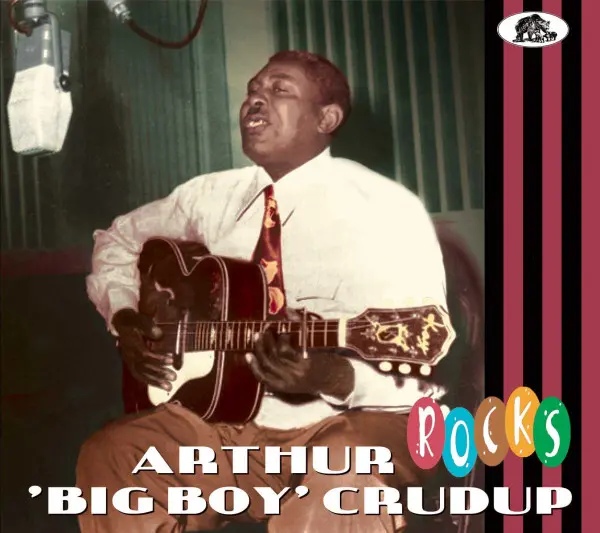
Ready to ship today, delivery time** appr. 1-3 workdays

Ready to ship today, delivery time** appr. 1-3 workdays

Item has to be restocked

only 1x still available
Ready to ship today, delivery time** appr. 1-3 workdays

Ready to ship today, delivery time** appr. 1-3 workdays

Ready to ship today, delivery time** appr. 1-3 workdays

Ready to ship today, delivery time** appr. 1-3 workdays
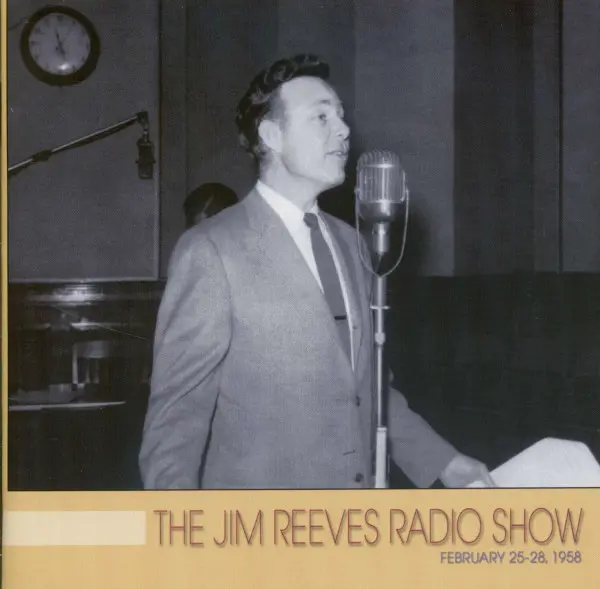
Ready to ship today, delivery time** appr. 1-3 workdays

Ready to ship today, delivery time** appr. 1-3 workdays
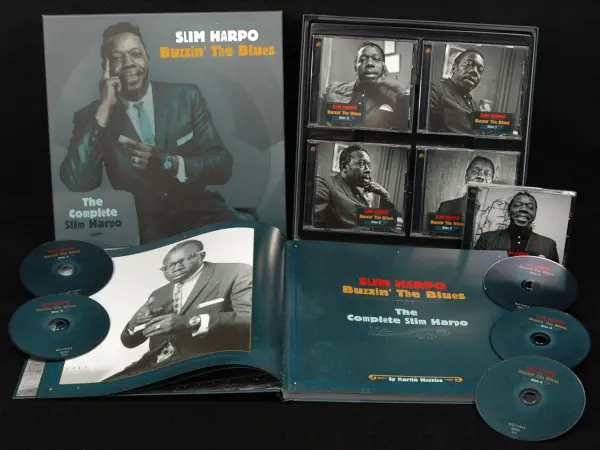
Ready to ship today, delivery time** appr. 1-3 workdays

Ready to ship today, delivery time** appr. 1-3 workdays
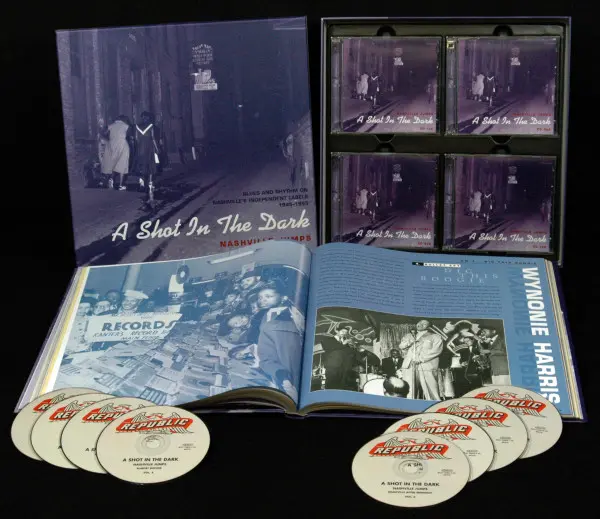
Ready to ship today, delivery time** appr. 1-3 workdays
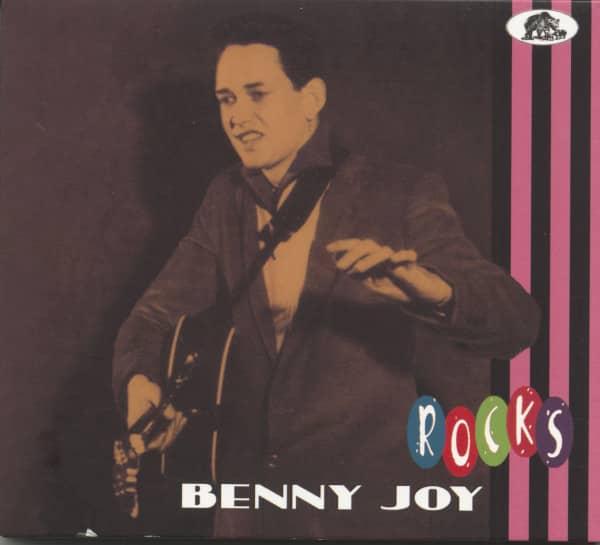
Ready to ship today, delivery time** appr. 1-3 workdays
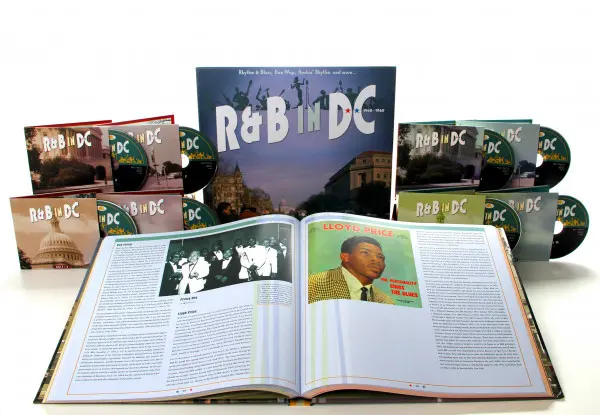
Ready to ship today, delivery time** appr. 1-3 workdays

Ready to ship today, delivery time** appr. 1-3 workdays

Ready to ship today, delivery time** appr. 1-3 workdays

Ready to ship today, delivery time** appr. 1-3 workdays

This product will be released at 7 May 2024

only 1x still available
Ready to ship today, delivery time** appr. 1-3 workdays

























